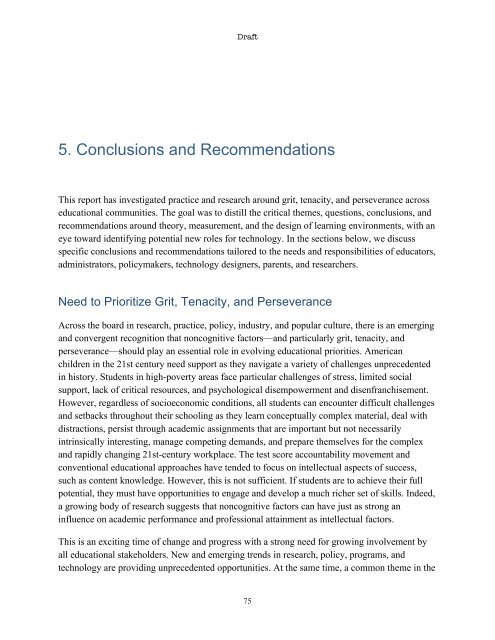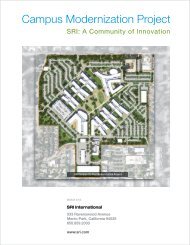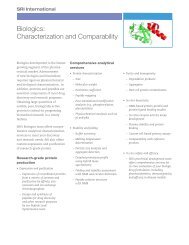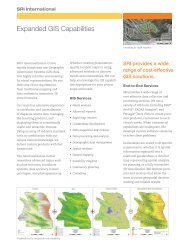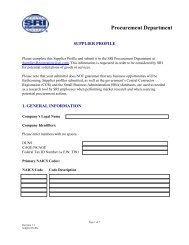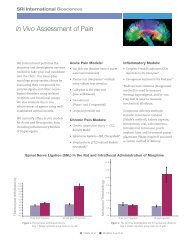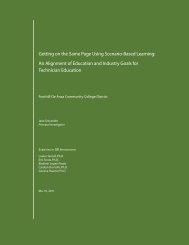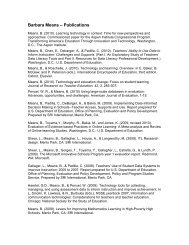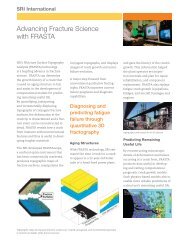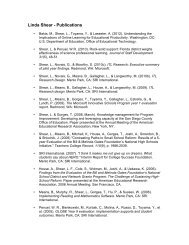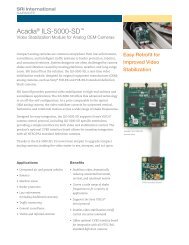Promoting Grit, Tenacity, and Perseverance - U.S. Department of ...
Promoting Grit, Tenacity, and Perseverance - U.S. Department of ...
Promoting Grit, Tenacity, and Perseverance - U.S. Department of ...
Create successful ePaper yourself
Turn your PDF publications into a flip-book with our unique Google optimized e-Paper software.
Draft<br />
5. Conclusions <strong>and</strong> Recommendations<br />
This report has investigated practice <strong>and</strong> research around grit, tenacity, <strong>and</strong> perseverance across<br />
educational communities. The goal was to distill the critical themes, questions, conclusions, <strong>and</strong><br />
recommendations around theory, measurement, <strong>and</strong> the design <strong>of</strong> learning environments, with an<br />
eye toward identifying potential new roles for technology. In the sections below, we discuss<br />
specific conclusions <strong>and</strong> recommendations tailored to the needs <strong>and</strong> responsibilities <strong>of</strong> educators,<br />
administrators, policymakers, technology designers, parents, <strong>and</strong> researchers.<br />
Need to Prioritize <strong>Grit</strong>, <strong>Tenacity</strong>, <strong>and</strong> <strong>Perseverance</strong><br />
Across the board in research, practice, policy, industry, <strong>and</strong> popular culture, there is an emerging<br />
<strong>and</strong> convergent recognition that noncognitive factors—<strong>and</strong> particularly grit, tenacity, <strong>and</strong><br />
perseverance—should play an essential role in evolving educational priorities. American<br />
children in the 21st century need support as they navigate a variety <strong>of</strong> challenges unprecedented<br />
in history. Students in high-poverty areas face particular challenges <strong>of</strong> stress, limited social<br />
support, lack <strong>of</strong> critical resources, <strong>and</strong> psychological disempowerment <strong>and</strong> disenfranchisement.<br />
However, regardless <strong>of</strong> socioeconomic conditions, all students can encounter difficult challenges<br />
<strong>and</strong> setbacks throughout their schooling as they learn conceptually complex material, deal with<br />
distractions, persist through academic assignments that are important but not necessarily<br />
intrinsically interesting, manage competing dem<strong>and</strong>s, <strong>and</strong> prepare themselves for the complex<br />
<strong>and</strong> rapidly changing 21st-century workplace. The test score accountability movement <strong>and</strong><br />
conventional educational approaches have tended to focus on intellectual aspects <strong>of</strong> success,<br />
such as content knowledge. However, this is not sufficient. If students are to achieve their full<br />
potential, they must have opportunities to engage <strong>and</strong> develop a much richer set <strong>of</strong> skills. Indeed,<br />
a growing body <strong>of</strong> research suggests that noncognitive factors can have just as strong an<br />
influence on academic performance <strong>and</strong> pr<strong>of</strong>essional attainment as intellectual factors.<br />
This is an exciting time <strong>of</strong> change <strong>and</strong> progress with a strong need for growing involvement by<br />
all educational stakeholders. New <strong>and</strong> emerging trends in research, policy, programs, <strong>and</strong><br />
technology are providing unprecedented opportunities. At the same time, a common theme in the<br />
75


